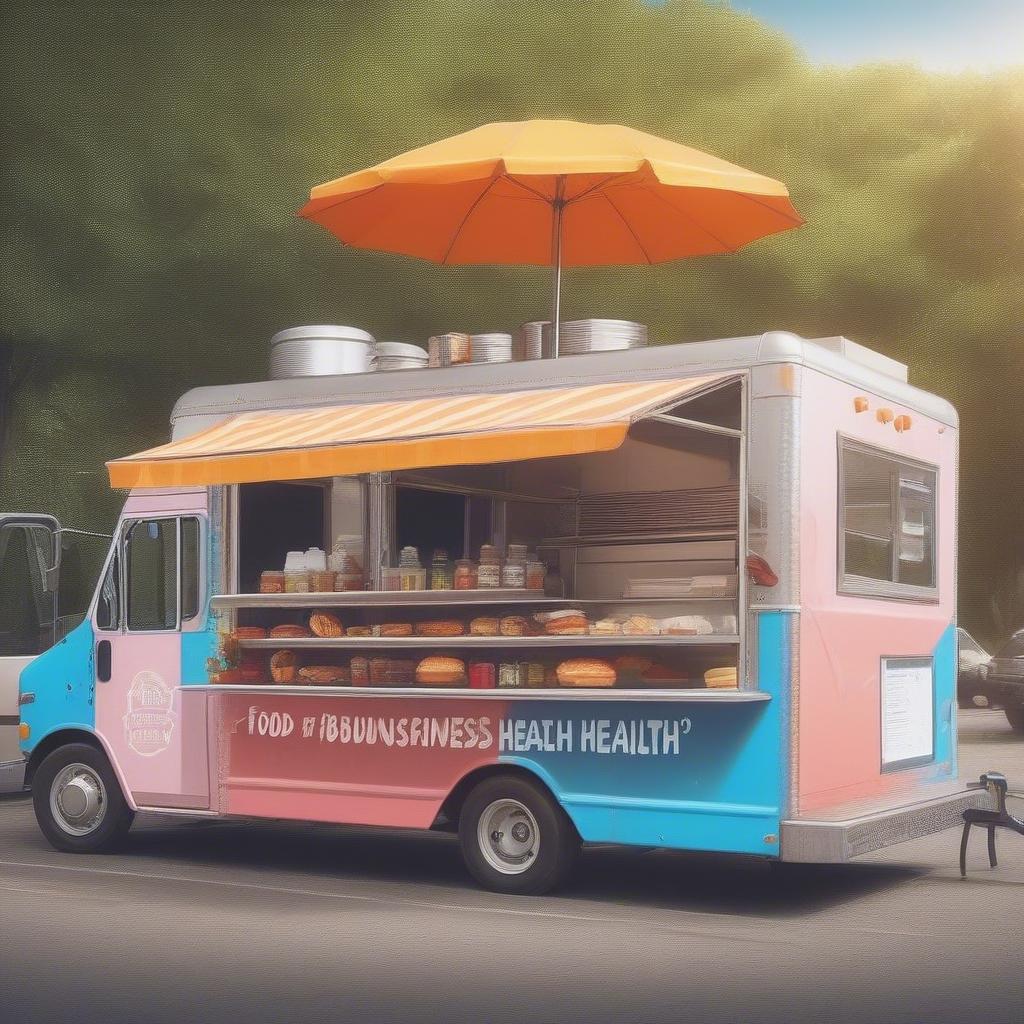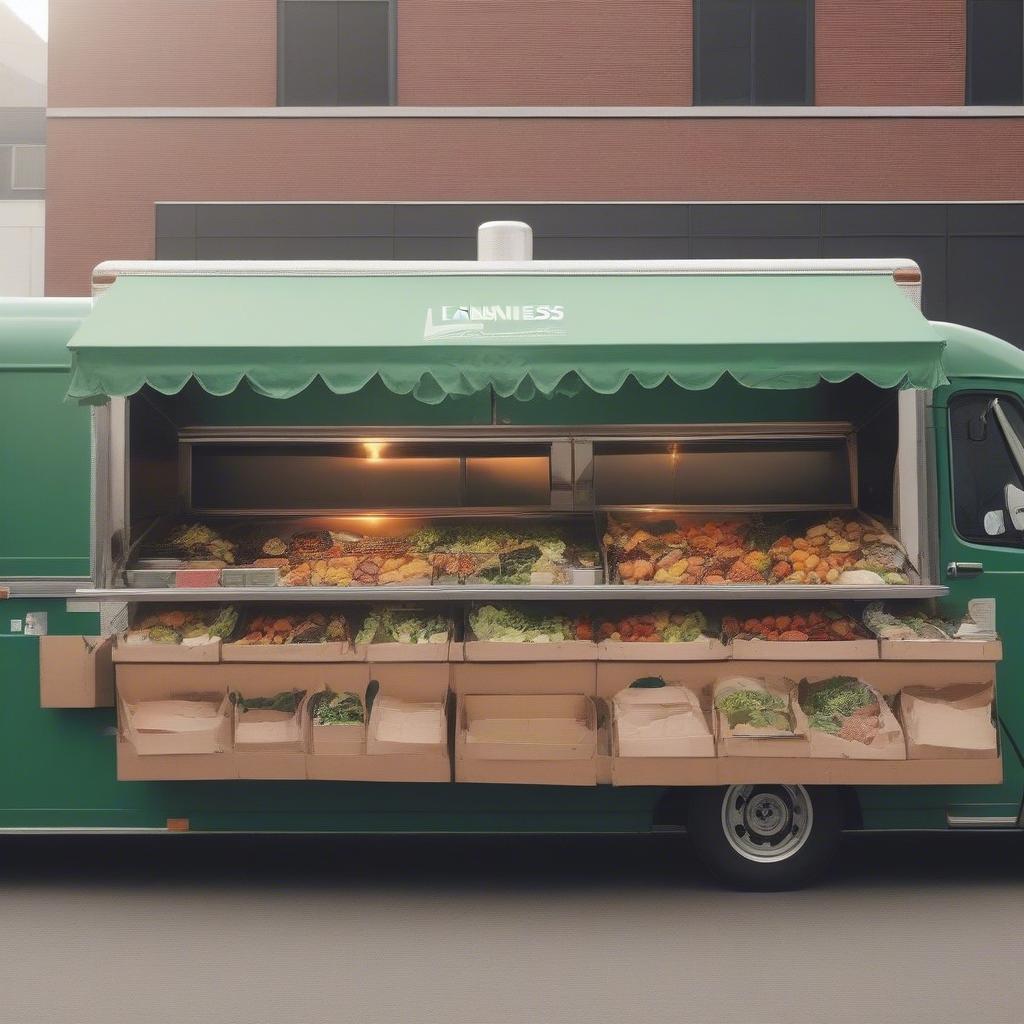
Food Truck Health Permits Explained for Beginners
Embarking on the delicious journey of owning a food truck? That’s fantastic! But before you hit the streets with your culinary creations, there’s a crucial pit stop: understanding food truck health permits. These permits aren’t just bureaucratic hurdles; they’re your ticket to operating legally and ensuring your customers enjoy safe, delicious food. Let’s dive into the world of food truck compliance and demystify what you need to know, covering every corner, leaving no stone unturned! This guide will serve as a roadmap, ensuring you’re well-equipped with the knowledge of business essentials to succeed.
What Are Food Truck Health Permits?
At their core, health permits for food trucks are official documents issued by local health departments that grant you permission to operate your mobile kitchen. Think of them as your public promise that you’re adhering to food safety standards and protecting the health of your community. They are a critical piece of the food truck compliance puzzle. Why are they important? Well, imagine serving food without adhering to these regulations. The consequences could range from hefty fines and temporary shutdowns to, worse, causing foodborne illnesses. These business essentials ensure your business runs smoothly and builds trust with your customers.
Why Do You Need a Health Permit?
The reasons for requiring health permits are rooted in public safety. They exist to:
- Prevent Foodborne Illnesses: By setting clear guidelines for food handling, storage, and preparation, these permits minimize the risk of food poisoning.
- Maintain Hygiene Standards: Permits mandate proper cleaning procedures and waste management, ensuring a sanitary food preparation environment.
- Ensure Legal Operation: Operating a food truck without the necessary permits is illegal and could lead to significant penalties.
- Build Customer Trust: Displaying your permit reassures customers that your food is prepared according to safety standards, building confidence in your brand.
- Community Responsibility: As a food business, you have a responsibility to protect the public’s health, and a health permit is the first step in demonstrating that commitment.
Think of it as a badge of honor, signifying that you are not just passionate about cooking but also committed to doing it safely and responsibly. This is not just about compliance, it’s about building trust and reputation as part of your business essentials.
Types of Food Truck Health Permits
The specific types of health permits you need can vary based on your location and the type of food you plan to serve. However, some common types you’re likely to encounter include:
1. Mobile Food Vendor Permit
This is often the foundational permit, granting you the general right to operate a mobile food business. It’s your primary proof of food truck compliance. This permit usually involves an inspection of your food truck’s design, equipment, and proposed procedures to ensure they meet basic health and safety requirements.
2. Food Handler’s Permit
This permit ensures you and your staff are trained in safe food handling practices. Everyone involved in food preparation and serving is usually required to complete a food handler’s course and obtain certification. This demonstrates your commitment to maintaining the highest safety standards – a vital component of business essentials.
3. Waste Disposal Permit
This permit addresses how you’ll manage waste and grease disposal. Proper waste handling is vital for preventing health hazards and protecting the environment. It’s part of your overall food truck compliance commitment.
4. Fire Safety Permit
This permit ensures your food truck is equipped with the necessary fire safety equipment, like fire extinguishers, and that your team knows how to use them safely. This is not just about regulations but also about protecting yourself, your staff, and the public. It’s an often overlooked but extremely important part of business essentials.
5. Commissary Agreement
Many jurisdictions require food trucks to use a commercial kitchen or "commissary" for food preparation, storage, and cleaning. This agreement certifies that you have a legally approved space to support your mobile operation. It’s a critical piece of food truck compliance.
6. Specific Food Type Permits
Depending on the type of food you prepare (e.g., raw seafood, potentially hazardous foods), you might need specific permits related to those products. For instance, handling potentially hazardous foods might need more strict adherence to regulations, meaning you’ll have to focus more on maintaining food truck compliance.
Remember that your needs may be unique depending on your menu and location, so check with your local authorities.
How to Get Your Food Truck Health Permits: A Step-by-Step Guide
Getting your health permits may seem daunting, but breaking it down into manageable steps makes the process far easier. This section will serve as your practical roadmap. These are truly business essentials you need to get right the first time!
Step 1: Research Local Regulations
Before you even think about firing up your grill, start by identifying the specific regulations and permits required in your area. This is a crucial initial step and key to your food truck compliance. Reach out to your:
- Local Health Department: This is your primary point of contact. They will provide specific information about permits, inspections, and guidelines.
- City or County Clerk’s Office: They often handle business licenses and other local requirements.
- Small Business Administration (SBA): They can provide general guidance on starting a business and navigating regulatory hurdles.
- Online Resources: Look for information on food truck regulations specific to your state and municipality.
This research will help you understand which permits you need, the application process, and the specific requirements you’ll have to meet, saving you time and potential delays down the line and setting you up for long term success and making sure your business essentials are covered.
Step 2: Prepare Your Food Truck for Inspection
Once you know what’s required, ensure your truck complies with all the requirements. It needs to be:
- Sanitary: Implement thorough cleaning practices, install proper handwashing facilities, and use approved food-grade materials.
- Equipped: Verify that your food truck is equipped with all necessary equipment, like refrigeration units, proper storage containers, and cooking equipment that meets safety standards.
- Compliant: Your truck’s plumbing, electrical, and ventilation systems should also comply with safety regulations.
This preparation demonstrates you’re serious about maintaining food truck compliance.
Step 3: Complete the Necessary Applications
Now, it’s time to fill out the required permit applications.
- Gather Your Documents: Collect any necessary documentation, such as proof of insurance, business licenses, and food handler’s certifications.
- Be Detailed and Accurate: Fill out the application forms carefully, providing accurate information. Any errors or omissions could lead to delays.
- Pay Application Fees: Be prepared to pay the necessary fees associated with each permit application.
This is a critical part of your business essentials. It sets the foundation for your legal operation.
Step 4: Schedule and Pass Your Inspection
After you submit your applications, your local health department will schedule an inspection of your food truck. Prepare for the inspection by:
- Thoroughly Cleaning: Ensure your truck is sparkling clean and ready for inspection.
- Reviewing Regulations: Review all regulations beforehand, making sure all aspects of your operation meet requirements.
- Answering Questions Clearly: Be prepared to answer any questions honestly and clearly.
- Addressing Issues Quickly: If the inspector identifies any issues, address them promptly to avoid delays.
Successfully passing your inspection is paramount to obtaining your health permits – this is your final step in achieving food truck compliance.
Step 5: Maintain Your Permits and Stay Compliant
Getting your permits is not a one-time thing. You need to:
- Renew Permits: Most health permits require periodic renewal, often annually. Keep track of these dates and renew them promptly.
- Maintain Standards: Consistently maintain your truck’s cleanliness and hygiene standards. Ongoing food truck compliance is vital to long-term success.
- Stay Updated: Keep informed of any changes in local health regulations and update your practices as needed.
- Be Prepared for Inspections: Health departments may conduct unannounced inspections, so be prepared for inspections at any time.
Your diligence in maintaining compliance demonstrates your commitment to the health and safety of your customers and your business’ longevity. Remember, it’s part of your business essentials to be proactive and keep up with changes.
Common Pitfalls and How to Avoid Them
Starting a food truck is challenging, and it’s easy to make mistakes. Here’s a look at some common pitfalls to steer clear of:
- Ignoring Local Regulations: Every area has its own rules. Failing to research and adhere to these regulations can lead to fines, closure, and potentially serious health hazards. Thorough research into food truck compliance is a must.
- Inadequate Preparation: Rushing into launching your business without proper planning and preparation can create huge problems down the road. A solid business plan and thorough understanding of your business essentials are crucial.
- Skipping Inspections: Trying to avoid inspections is never a good idea. Always be proactive in complying with regulations.
- Inconsistent Practices: Maintaining hygiene practices inconsistently can lead to issues with permits. Consistent food truck compliance is vital.
- Not Tracking Permit Renewals: Missing renewal deadlines can lead to operational interruptions. Setting reminders for renewal dates is a must.
- Underestimating Costs: Food truck operation involves expenses beyond equipment and ingredients. Budgeting for permit fees, inspections, and ongoing compliance costs is essential. This is one of the most important aspects of getting your business essentials in order.
- Poor Record-Keeping: Maintain detailed records of your permits, inspections, and expenses. Good record-keeping makes it easier to track compliance and manage finances.
Avoiding these pitfalls requires meticulous planning, consistent execution, and a proactive approach to compliance.
Templates and Checklists to Simplify the Process
To make the health permit process more manageable, use these templates and checklists to stay organized:
Permit Application Checklist
- [ ] Research local regulations.
- [ ] Identify necessary permits.
- [ ] Gather all required documentation (business licenses, insurance, food handler’s permits).
- [ ] Complete permit applications accurately and thoroughly.
- [ ] Pay all application fees.
- [ ] Submit completed applications to the appropriate agencies.
Food Truck Inspection Checklist
- [ ] Clean all surfaces and equipment thoroughly.
- [ ] Check and replenish handwashing supplies.
- [ ] Verify proper food storage temperatures (refrigerator, freezer, hot holding).
- [ ] Ensure all cooking equipment is functioning correctly.
- [ ] Confirm the availability of required fire safety equipment.
- [ ] Review employee hygiene practices with your team.
Permit Renewal Tracking Template
- Permit Name: [Name of Permit]
- Permit Number: [Permit Number]
- Issuing Agency: [Name of Agency]
- Issue Date: [Date of Issuance]
- Expiration Date: [Date of Expiration]
- Renewal Date: [Reminder Date for Renewal]
These templates and checklists will help you stay on top of your permits and ensure that you maintain all aspects of food truck compliance.
Benefits of Proper Permit Management
Properly managing your health permits extends beyond regulatory compliance. Here’s how it impacts your business:
- Legal Operation: Operating legally protects you from fines and legal issues.
- Customer Trust: Customers are more likely to trust your business when they see you are following health standards, which enhances your business essentials overall.
- Positive Reputation: A clean and well-maintained operation will enhance your brand’s reputation and appeal to customers.
- Safe Environment: Adhering to hygiene practices provides a safe environment for both customers and staff.
- Peace of Mind: Knowing you are operating legally and responsibly allows you to focus on growing your business.
Proper permit management is crucial to your long-term success and allows you to build a sustainable, trusted brand that people will want to purchase from. It demonstrates your commitment to doing business the right way and lays the foundation for your business essentials.
Learn Business: Your Partner in Success
Navigating the complexities of starting and running a food truck can be challenging. That’s where Learn Business can step in as your reliable partner. We understand the intricacies of business essentials for food truck owners, offering tailored guidance and resources to streamline your journey.
How Learn Business Supports You:
- Customized Templates: We provide ready-to-use templates for permit applications, inspection checklists, and renewal tracking, saving you valuable time and effort.
- Step-by-Step Guides: Our detailed guides break down complex processes, making permit acquisition and compliance less intimidating.
- Expert Advice: Our team of experienced professionals provides personalized advice, answering your questions and addressing your unique concerns.
- Ongoing Support: We offer ongoing support to help you stay updated on regulatory changes and maintain consistent compliance.
- Comprehensive Resources: Our resource library is filled with valuable articles, webinars, and toolkits that cover all aspects of starting and managing a food truck business.
Learn Business is not just a service; it’s a partner that understands your challenges and is dedicated to helping you build a successful and thriving food truck business. From understanding food truck compliance to strategizing for growth, we’re here to support you every step of the way. Our goal is to empower you with the knowledge and tools you need to thrive.
Conclusion: Your Path to Food Truck Success
Understanding and securing your food truck health permits is a foundational step for any aspiring food truck entrepreneur. This process, while detailed, is far from insurmountable. By conducting thorough research, meticulously preparing your truck, completing necessary applications, passing your inspections, and maintaining ongoing compliance, you can confidently operate a safe, legal, and thriving food truck business. Remember, this is an investment in your brand and your customers.
By keeping on top of your business essentials and understanding the intricacies of food truck compliance, you’re building not just a food truck but also a pillar of trust and reliability within your community. The journey to becoming a successful food truck owner is within reach. Lean on the resources you have, including templates and expert guidance, and you’ll be serving satisfied customers with confidence. With dedication, preparation, and the right support, your food truck adventure is set for long-term success.



Leave a Reply